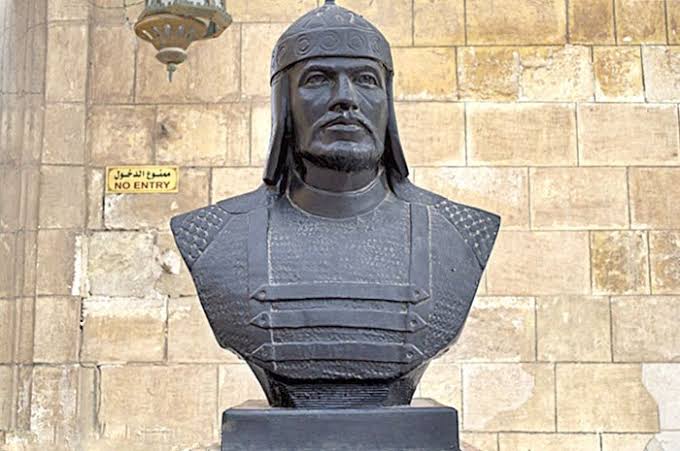Sultan Baybars, Hero of Ain Jalut
Sultan Baybars was born in the territory of modern Kazakhstan’s Atyrau Region and was the fourth Mamluk Sultan of Egypt and Syria

Sultan Baybars, also known as Baibars or Rukn al-Din Baybars al-Bunduqdari, was a Mamluk sultan who ruled Egypt and Syria from 1260 to 1277. He is known for his military campaigns against the Crusader states and the Mongols, and is considered one of the greatest Muslim generals of the medieval period.
One of Baybars’ most famous victories was the Battle of Ain Jalut, which took place in 1260. This battle was fought between the Mamluks and the Mongols, who had been expanding their empire into the Middle East. The Mongols had already defeated the Seljuk Turks and the Khwarezmians, and were poised to conquer Egypt and Syria.
Baybars, however, was able to rally a coalition of Muslim armies to resist the Mongol invasion. In the Battle of Ain Jalut, Baybars and his allies were able to defeat the Mongol army, marking the first time that the Mongols had been decisively defeated in battle.
The victory at Ain Jalut was significant because it halted the Mongol advance and preserved the independence of Egypt and Syria. It also cemented Baybars’ reputation as a skilled military commander and helped to establish the Mamluk sultanate as a major power in the region.
Tactics of Sultan Baybars at Ain Jalut
The tactics used by Baybars at the Battle of Ain Jalut were key to his victory over the Mongols.
Here are some of the main tactics employed:
Use of terrain: Baybars positioned his troops at the foot of a hill and used the terrain to his advantage. This made it difficult for the Mongols to use their cavalry to their full advantage and gave the Mamluks a better chance of holding their ground.
Heavy infantry: Baybars relied heavily on his infantry, who were armed with spears and swords, to withstand the Mongol cavalry charges. The Mamluks were well-trained and well-disciplined, and were able to repel the Mongol attacks.
Use of archers: Baybars also made effective use of archers, who were positioned on the flanks of his army. They were able to rain arrows down on the Mongol cavalry, causing significant damage.

Strategic deception: Sultan used a clever tactic of sending a small detachment of soldiers to attack the Mongol camp in the night. This caused confusion and led the Mongols to believe that the Mamluks were preparing for a full-scale attack, which caused them to retreat to their own camp instead of continuing their advance.
Encircling the enemy: When the Mongols retreated to their camp, Baybars took advantage of the situation and encircled the enemy. The Mongols were trapped, and Baybars was able to launch a devastating attack on them.
Baybars’ tactics at the Battle of Ain Jalut were well-executed and played a major role in his victory over the Mongols.
Battle of Ain Jalut changed the history
Battle of Ain Jalut was a significant turning point in Middle Eastern history and had a major impact on the region. Here are some of the ways in which it changed history:
Stopped the Mongol invasion: The victory at Ain Jalut stopped the Mongol advance and prevented them from conquering Egypt and Syria. This was a significant achievement, as the Mongols had previously defeated other Muslim armies in the region.
Preserved the independence of Egypt and Syria: The Mamluk victory at Ain Jalut preserved the independence of Egypt and Syria and prevented them from becoming part of the Mongol Empire. This allowed the Mamluks to establish their own independent state and become a major power in the region.
Boosted morale in the Muslim world: The victory at Ain Jalut was a major boost to the morale of Muslims across the Middle East. It showed that it was possible to defeat the Mongols, who were seen as invincible, and it gave hope to those who had previously been defeated by them.
Influenced future military tactics: The tactics used by Baybars at Ain Jalut, such as the use of heavy infantry and archers, influenced future military tactics in the Middle East. These tactics became the basis for the Mamluk military system, which was used to great effect in subsequent battles.
The Battle of Ain Jalut was a pivotal moment in Middle Eastern history that changed the course of events in the region.
It demonstrated the resilience of Muslim armies and showed that it was possible to resist the Mongol invasion and victory at Ain Jalut remains one of Baybars most celebrated achievements.


